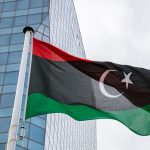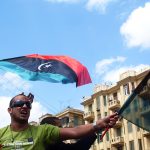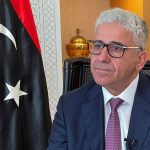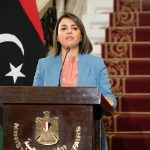Despite a disagreement over a new ambassador, the UN extends its Libya mission by three months


Vassily Nebenzia, Russia’s UN Ambassador, said Moscow merely requested a three-month extension to urge UN Secretary General Antonio Guterres to designate a new special representative to lead the UN Support Mission in Libya as soon as possible (UNSMIL). Jan Kubis, the former UN special envoy, resigned on November 23 after only ten months on the job.
Mr Nebenzia stated that the UN mission “has been unable to give substantive support for the political process in Libya for more than six months” due to the lack of a new ambassador. He accused certain unnamed Security Council members who he said were “unwilling to accept a scenario in which UNSMIL is led by an African representative.”
“Russia has once again isolated itself by not joining agreement with the 14 other members of the council” who supported a one-year substantive mandate, said UN Ambassador Barbara Woodward, who supervised discussions on the resolution.
Related Posts
A short mandate “severely hampers” the UN’s ability to find a new chief of mission, according to US Deputy Ambassador Jeffrey DeLaurentis, and “creates doubt for the Libyan people and their leaders regarding the Security Council’s commitment to Libya.”
Mr DeLaurentis also chastised Russia for excluding “important wording on reconciliation and security sector reform” from the resolution approved on Friday, which the council’s three African members had pushed for. After a three-month extension in January, the UNSMIL mission was set to expire on Saturday.
Libya was thrown into chaos after tyrant Muammar Qaddafi was deposed and murdered in a 2011 rebellion. Rival administrations located in the capital, Tripoli, and the eastern city of Tobruk, both backed by various militias and international powers, split the country.
Following an unsuccessful assault by eastern troops to overrun Tripoli, a UN-brokered truce was reached in October 2020, and a transitional government was formed in February 2021 to supervise elections slated for December.
The House of Representatives in eastern Libya nominated former interior minister Fathi Bashagha to lead a new interim administration in February, claiming that interim Prime Minister Abdul Hamid Dbeibah’s mandate had expired when the election failed. Mr. Dbeibah is adamant that he would continue to serve as Prime Minister until elections are held. The competing groups failed to reach an agreement on constitutional procedures for elections after a week of discussions in Egypt’s capital.
Following Mr. Kubis’ resignation, Mr. Guterres chose American diplomat Stephanie Williams as his special adviser and dispatched her to Tripoli. Ms. Williams is a proficient Arabic speaker who previously worked as the UN’s deputy special representative in Libya from 2018 to 2020. She managed the ceasefire and transitional government accords, and informed reporters following the Cairo summit that the two sides had agreed to meet again in May.
Ms Williams, whose contract is slated to expire, is likely to stay in her job “until we have any further notice to provide you,” according to UN deputy spokesperson Farhan Haq. Gabon, Kenya, and Ghana, the three African Security Council members, issued a joint statement calling for a synchronized withdrawal of all foreign fighters and mercenaries from Libya, as well as UN, African Union, and international partners to support a national dialogue and reconciliation process in the country.
The statement was read out by Gabon’s UN Ambassador Michel Biang, who highlighted that because Libya’s issue primarily affects the country’s African neighbors, Africans should be included in the search for a solution, and the next UN special envoy should be an African.
The inability of the UN Security Council to agree on a meaningful mandate for the Libya mission, according to Norway’s Deputy UN Ambassador Trine Heimerback, “not only sends an unpleasant signal to the Libyan people, but also to the whole region.”













